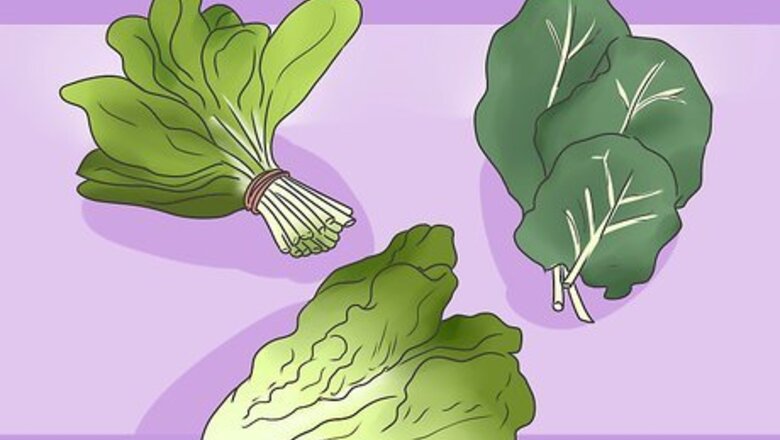
views
X
Research source
Keep your bunny healthy and happy with a daily serving of the right foods.
Getting the Right Greens
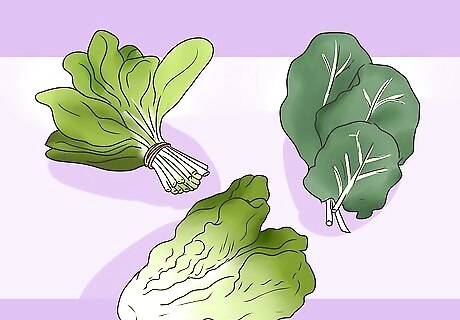
Your bunny’s teeth are constantly growing, so helping her work her teeth with different kinds of hay will help with grinding. Good vegetables for your bunny include: Collard greens (high in vitamin A) Beet greens (the tops, high in vitamin A) Lettuce: Romaine, Red or Green leaf (no iceberg or light colored leaf) Spinach Parsley Basil Mint Bok Choy Dandelion leaves Mustard greens Pea pods (just the pods) Brussels sprouts Swiss chard Broccoli (the leaves and stems) Cilantro Dill The green part of carrots Celery leaves Watercress
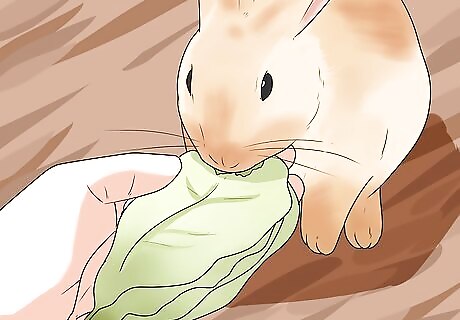
Avoid overfeeding your bunny certain vegetables. Some vegetables can be harmful if your bunny eats too much over a short period of time, or if she develops a build-up of certain nutrients in her body. Vegetables like kale, parsley, mustard greens and spinach should be fed sparingly to your bunny as they are high in oxalates and goitrogens. Vegetables such as eggplants, potatoes, and tomato plant leaves are toxic to rabbits and should not be fed to them under any circumstances.
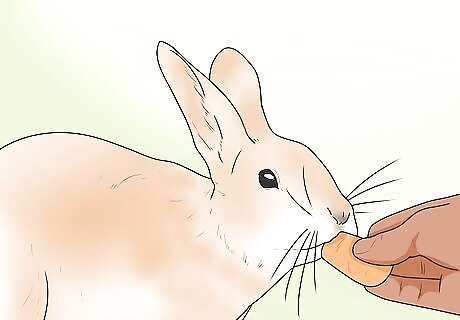
Use carrots and fruits as special treats. Sparingly. The image of a bunny munching on a pile of carrots is in fact an unhealthy one, as carrots are high in sugar and oxalate, the later can encourage bladder stone formation. Carrots should only be used as treats for your bunny. Bunnies unfortunately enjoy sugar and are prone to over-eating sugary foods over healthy ones. Fruits are also high in natural sugar and sugary fruits like bananas and grapes should only be given to your bunny as occasional treats. Limit your bunny’s fruit consumption.
Feeding Your Rabbit
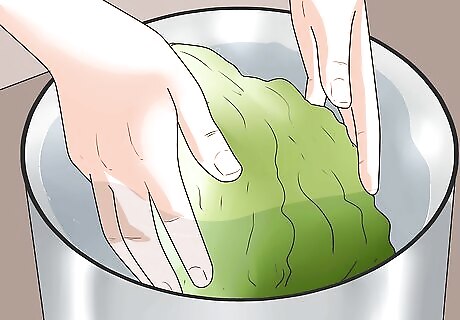
Wash all vegetables before giving them to your rabbit. This will clean the vegetables and remove any pesticides or harmful chemicals on the surface of the vegetables. Buy organic if possible. If possible, choose organic produce to avoid exposing your bunny to harmful pesticides.
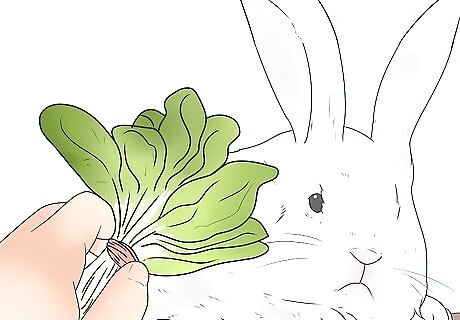
Introduce greens one at a time. This will allow you to check for any sensitivities in your rabbit, and avoid shocking her system. Begin with only a small amount of a green, and watch for any intestinal issues in your bunny, such as diarrhea, soft stools, or unusually tiny stools Rabbits also have individual likes and dislikes when it comes to taste so if your bunny isn’t interested in a certain vegetable, make note of it and replace it with a vegetable she might prefer.
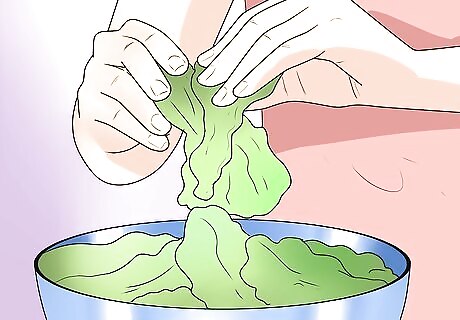
Create a balanced salad for your bunny as a treat, with a base of green leaf, romaine, or butter lettuce, and two other herbs or greens, one of which contains vitamin A. For example, you may try a salad of romaine lettuce, spinach, and mint. See how your bunny reacts to this salad, and if she responds well, continue to feed her a variation of this salad, switching out the spinach with beet greens or collard greens. After several feedings, replace the base with another lettuce and a different vitamin A rich vegetable.
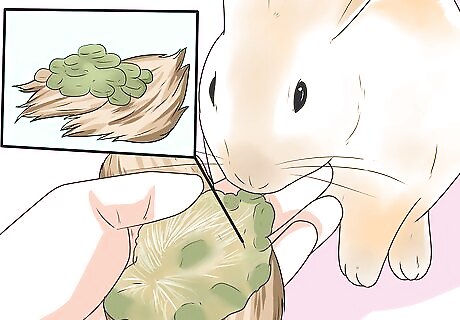
Maintain your bunny’s diet with hay and pellets. Fresh hay is the most important element of your bunny’s diet, as it is high in fiber and good for your bunny’s digestive system. Your rabbit’s diet should consist of mostly fresh hay, fresh pellets, and fresh water. Give adult rabbits timothy, grass, and oat hays, and give younger rabbits alfalfa hay. Avoid giving adult rabbits alfalfa, as it is too high in protein, calcium, and sugar. If your rabbit is new to veggies, try cutting them into small pieces and mixing them in with her hay or pellets. Your bunny may not notice them among her hay and will likely end up enjoying them.



















Comments
0 comment